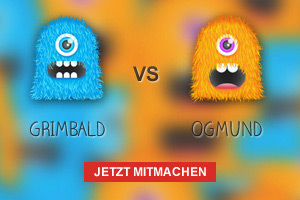Zuletzt hier: 05.10.2016Mitglied seit: 14.03.2013Geburtstag: 15.11.1988 (36)
Video von Andria
Kommentare:
17.07.2013 um 08:27 h
Gloomy Sunday Part 1 [English Subtitle]
Directed by Rolf Schübel
Produced by Richard Schöps
Written by Ruth Toma
Rolf Schübel
Cast:
Erika Marozsán as Ilona Várnai
Joachim Król as László Szabó
Ben Becker as the young Hans Wieck
Rolf Becker as the old Hans Wieck
Ilse Zielstorff (de) as Mrs Wieck
Stefano Dionisi as András Aradi
Ein Lied von Liebe und Tod (Gloomy Sunday – A Song of Love and Death, Hungarian: Szomorú vasárnap) is a 1999 film, a German/Hungarian co-production.
Although the movie centers on a romantic love triangle with tragic consequences, it has a strong history background, set in Hungary during World War II. The film is based on the novel by Nick Barkow, co-written and directed by Rolf Schübel and tells a fictional story about the creation of the infamous song "Gloomy Sunday". Starring are Joachim Król (László, Jewish restaurant owner), Erika Marozsán (Ilona, waitress and László's lover), Stefano Dionisi (András, pianist who creates "Gloomy Sunday") and Ben Becker (Hans Wieck, a German business man who becomes an SS officer).
Plot summary
The film opens and closes in the modern era. A German industrialist, Hans Wieck, returns to Budapest with his family on the occasion of his 80th birthday having been stationed there during World War II. During dinner at his favorite restaurant, Szabo's, Hans regales his family and friends with stories of his many visits to the restaurant before and during the war. As he relishes his favorite dish, "Beef Rolls" he suddenly collapses with the song "Gloomy Sunday" being played, at his request, by two musicians. As he dies he sees a portrait of a beautiful woman taken many years before. This portrait is the device by which the film travels back in time to Budapest just before the war.
Back in the late 1930s in Budapest, restaurant owner László Szabo (a Jew by birth) and his beautiful lover and waitress, Ilona (the woman in the photograph) hire a young pianist, András, to play in their restaurant. András falls in love with Ilona and she with him, though she still maintains a lover's relationship with László. András is inspired to write the song "Gloomy Sunday" for Ilona's birthday, the same night that a young Hans (who also shares the same birthday) takes the picture of her and asks her to marry him, though she refuses him. Later that night Hans tries to commit suicide by jumping into the Danube, but László saves him and Hans returns to Germany. The resulting song "Gloomy Sunday" is recorded and though very popular at first soon becomes feared by the public for its melancholy melody which seems to trigger a series of suicides. András comes to regret writing the song and nearly attempts suicide himself but is stopped by Ilona and László before he can take a small vial of poison. András, László and Ilona form a tenuous though touching personal and professional relationship in which both men share the love of the beautiful Ilona. It has its problems, as articulated by László to Ilona during an argument he is having with András in front of her: "Easy for you, you've got all you need. You have two men, and each of us only half a woman."
After a few years, Nazi Germany captures Budapest and Hans returns. He is now an SS officer and responsible for organizing the transport of Budapest's Jews to the concentration camps; however, he uses his position to save the wealthiest Jews (and allows them to secretly leave German Europe) in exchange for large "gifts" of goods and money. One night at the restaurant Hans brings a fellow SS officer to Szabos and insists that András play his fateful composition. András refuses but is compelled to do so when Ilona begins to sing the words to the song, something she has told him she would never do unless she were alone. When the song is over András kills himself by grabbing Hans's pistol and shooting himself in the head.
After they bury András, László and Ilona pledge their love to each other and László puts the restaurant in her name to keep it from being confiscated by the Nazis. At Ilona's request Hans promises to protect László from being rounded up for "special treatment". However, as the Russians are closing in on Budapest, László is arrested and sent to the railway station to be transferred to a concentration camp. Ilona hurries to Hans' headquarters to ask him to intervene which he promises to do, making it clear that she must sleep with him to seal the bargain. A tearful Ilona submits to save her lover, but Hans betrays them, passing László by at the station and saving another Jew whose family had already paid him a large ransom. The historical section of the film ends with the revelation of Ilona's pregnancy as she "speaks" to András at his grave, leaving the audience unsure who might be the father of her child.
Back in the present, media reporters are paying tribute to the deceased Hans, as he is being put into his casket and driven away in a hearse. Ironically, Hans Wieck is being remembered not only as a wealthy industrialist but also as someone who saved "a thousand Hungarian Jews" during the war. In the closing scene of the film, the middle-age waiter at Szabos pours two glasses of champagne and returns to the kitchen where an older Ilona (his mother) is washing out the bottle of poison taken from András so long ago. Her son congratulates her on her birthday and the two embrace with the song "Gloomy Sunday" playing in the background.
Directed by Rolf Schübel
Produced by Richard Schöps
Written by Ruth Toma
Rolf Schübel
Cast:
Erika Marozsán as Ilona Várnai
Joachim Król as László Szabó
Ben Becker as the young Hans Wieck
Rolf Becker as the old Hans Wieck
Ilse Zielstorff (de) as Mrs Wieck
Stefano Dionisi as András Aradi
Ein Lied von Liebe und Tod (Gloomy Sunday – A Song of Love and Death, Hungarian: Szomorú vasárnap) is a 1999 film, a German/Hungarian co-production.
Although the movie centers on a romantic love triangle with tragic consequences, it has a strong history background, set in Hungary during World War II. The film is based on the novel by Nick Barkow, co-written and directed by Rolf Schübel and tells a fictional story about the creation of the infamous song "Gloomy Sunday". Starring are Joachim Król (László, Jewish restaurant owner), Erika Marozsán (Ilona, waitress and László's lover), Stefano Dionisi (András, pianist who creates "Gloomy Sunday") and Ben Becker (Hans Wieck, a German business man who becomes an SS officer).
Plot summary
The film opens and closes in the modern era. A German industrialist, Hans Wieck, returns to Budapest with his family on the occasion of his 80th birthday having been stationed there during World War II. During dinner at his favorite restaurant, Szabo's, Hans regales his family and friends with stories of his many visits to the restaurant before and during the war. As he relishes his favorite dish, "Beef Rolls" he suddenly collapses with the song "Gloomy Sunday" being played, at his request, by two musicians. As he dies he sees a portrait of a beautiful woman taken many years before. This portrait is the device by which the film travels back in time to Budapest just before the war.
Back in the late 1930s in Budapest, restaurant owner László Szabo (a Jew by birth) and his beautiful lover and waitress, Ilona (the woman in the photograph) hire a young pianist, András, to play in their restaurant. András falls in love with Ilona and she with him, though she still maintains a lover's relationship with László. András is inspired to write the song "Gloomy Sunday" for Ilona's birthday, the same night that a young Hans (who also shares the same birthday) takes the picture of her and asks her to marry him, though she refuses him. Later that night Hans tries to commit suicide by jumping into the Danube, but László saves him and Hans returns to Germany. The resulting song "Gloomy Sunday" is recorded and though very popular at first soon becomes feared by the public for its melancholy melody which seems to trigger a series of suicides. András comes to regret writing the song and nearly attempts suicide himself but is stopped by Ilona and László before he can take a small vial of poison. András, László and Ilona form a tenuous though touching personal and professional relationship in which both men share the love of the beautiful Ilona. It has its problems, as articulated by László to Ilona during an argument he is having with András in front of her: "Easy for you, you've got all you need. You have two men, and each of us only half a woman."
After a few years, Nazi Germany captures Budapest and Hans returns. He is now an SS officer and responsible for organizing the transport of Budapest's Jews to the concentration camps; however, he uses his position to save the wealthiest Jews (and allows them to secretly leave German Europe) in exchange for large "gifts" of goods and money. One night at the restaurant Hans brings a fellow SS officer to Szabos and insists that András play his fateful composition. András refuses but is compelled to do so when Ilona begins to sing the words to the song, something she has told him she would never do unless she were alone. When the song is over András kills himself by grabbing Hans's pistol and shooting himself in the head.
After they bury András, László and Ilona pledge their love to each other and László puts the restaurant in her name to keep it from being confiscated by the Nazis. At Ilona's request Hans promises to protect László from being rounded up for "special treatment". However, as the Russians are closing in on Budapest, László is arrested and sent to the railway station to be transferred to a concentration camp. Ilona hurries to Hans' headquarters to ask him to intervene which he promises to do, making it clear that she must sleep with him to seal the bargain. A tearful Ilona submits to save her lover, but Hans betrays them, passing László by at the station and saving another Jew whose family had already paid him a large ransom. The historical section of the film ends with the revelation of Ilona's pregnancy as she "speaks" to András at his grave, leaving the audience unsure who might be the father of her child.
Back in the present, media reporters are paying tribute to the deceased Hans, as he is being put into his casket and driven away in a hearse. Ironically, Hans Wieck is being remembered not only as a wealthy industrialist but also as someone who saved "a thousand Hungarian Jews" during the war. In the closing scene of the film, the middle-age waiter at Szabos pours two glasses of champagne and returns to the kitchen where an older Ilona (his mother) is washing out the bottle of poison taken from András so long ago. Her son congratulates her on her birthday and the two embrace with the song "Gloomy Sunday" playing in the background.
Dieser Inhalt wird über einen Drittanbieter (YouTube) zur Verfügung gestellt. Das Laden bedarf der Zustimmung.
Die Einstellung kann jederzeit über den Link "Cookie-Einstellungen" am Ende der Seite geändert werden.
Die Datenschutzerklärung von YouTube: https://policies.google.com/privacy?fg=1.
YouTube akzeptieren Cookie-Einstellungen
Die Einstellung kann jederzeit über den Link "Cookie-Einstellungen" am Ende der Seite geändert werden.
Die Datenschutzerklärung von YouTube: https://policies.google.com/privacy?fg=1.
YouTube akzeptieren Cookie-Einstellungen
Kommentare:
- Keine Kommentare zu diesem Eintrag -





